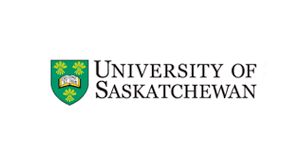University of Saskatchewan experts form app to give patients better access to information
The team includes Dr. Holly Mansell (PhD), from the College of Pharmacy and Nutrition, Dr. Nathaniel Osgood (PhD), from the Department of Computer Science in the College of Arts and Science, and other colleagues from USask and the Saskatchewan Health Authority, as well as Saskatchewan patients.
Receiving a life-changing diagnoses can be extremely challenging and patient education is a fundamental part of the road to recovery. To help patients navigate the health-care system and participate in treatment decisions, they need relevant and timely information. This information must be easy to understand and resonate with their situation. Solid organ transplantation in particular is a challenging area where the educational needs are particularly high given the life altering changes patients face, including lifelong commitment to bloodwork, appointments, and immunosuppressive medications.
“Our previous research in transplant education has indicated that patient-centered video education can improve knowledge and satisfaction for transplant patients and caregivers,” said Mansell. “However, video education cannot easily be tailored, and editing a video series requires significant time and resources.”
The aim of this project is to develop a patient-education app that can be used in all health care settings and be easily and efficiently adapted to meet the needs of a specific population or individual.
“Working with experts in patient education, computer scientists and trainees, our plan is to test the app with a group of Saskatchewan patients who have received a kidney transplant. Then, the next step will be to evaluate whether including patient stories makes education more effective,” said Mansell.
The team is supported by recent funding from the Saskatchewan Health Research Foundation (SHRF) whose program acts as a first step to enabling a diverse and connected research community to receive funding and conduct impactful research aligned with needs of Saskatchewan people.
“We know that research thrives when it is rooted in relationships and connections and inspired by the communities we serve and the land we inhabit,” said USask Vice President, Research, Baljit Singh. “This funding will allow these interdisciplinary teams to benefit from the intersection of diverse minds, traditions, experiences and ways of knowing, leading to our ultimate goal of purposeful impact and discovery the world needs.”
Other projects funded by SHRF will look to broaden and strengthen connections with patient groups, decision-makers, or knowledge keepers, such as Dr. Jorden Cummings’ (PhD) team that aims to cultivate a larger and tighter network of scholars and community organizations for conducting high-quality applied research focused on gender-based interpersonal violence. Other projects will determine the scope and scale of a health issue important to those living in Saskatchewan, such as Dr. Joshua Lawson’s (PhD) team’s aim to investigate the potential problem of asthma over- and under-diagnosis, including between rural and urban areas.
In total, USask research teams were supported with nearly $130,000 in funding for the following projects:
Allison Cammer, College of Pharmacy and Nutrition – $9,936
End of Life Nutrition Care in Saskatchewan Long-Term Care Homes: Evidence Review and Stakeholder Consultation.
Jorden Cummings, College of Arts and Science – $9,978
RESOLVing Saskatchewan Violence: Broadening and Strengthening Connections.
Sarah Donkers, College of Medicine – $10,000
Increasing Accessibility to Neurorehabilitation Services in Saskatchewan: Setting the Stage for a ‘Provincial Neurorehab Strategy.’
Ernesto Figueiro-Filho, College of Medicine – $10,000
Placental Growth Factor (PLGF) as a clinical tool to manage high-risk pregnancies.
Peter Hedlin and Jennifer O’Brien, College of Medicine – $9,997
Experiences of older patients, their families, and healthcare providers with delirium after surgery: an action research study to improve patient and family centered care.
Joshua Lawson, College of Medicine – $9,997
Geographic variation in the under- and over-diagnosis of asthma.
Geoffrey Maina, College of Nursing, and Breanna Heatherington, SHA – $9,983
Assessing rural communities in Northeast Saskatchewan’s readiness to implement harm reduction interventions and identifying evidence-based and sustainable priorities to support their uptake.
Holly Mansell, College of Pharmacy and Nutrition, and Nathaniel Osgood, College of Arts and Science – $10,000
Co-developing an App to Improve Patient Education.
Pammla Petrucka and April Mackey, College of Nursing – $9,996
Saskatchewan Awareness, Advocacy, and Knowledge Strategies (Sask-A2SKS): Addressing IPV amongst Queer Women in Saskatchewan’s 2SLBGTQ+ Communities.
Schroder Sattar and Roslyn Compton, College of Nursing – $9,780
Feasibility of virtual exercise program for men with prostate cancer: The TARGET study.
Michelle Siqueira and Amrinderbir Singh, College of Dentistry – $9,986
Water quality testing at selected urban and rural dental clinics in Saskatchewan – assessing trends over six months.
Hassan Vatanparast, School of Public Health and College of Pharmacy and Nutrition, and Stacy Wiens, SHA – $10,000
Working together to improve the food environment in Saskatchewan public recreation facilities.
Chris Zhang, College of Engineering – $10,000
Development of a cell-individualized NanoKnife protocol for glioma tumours with the least damage of surrounding healthy cells.

